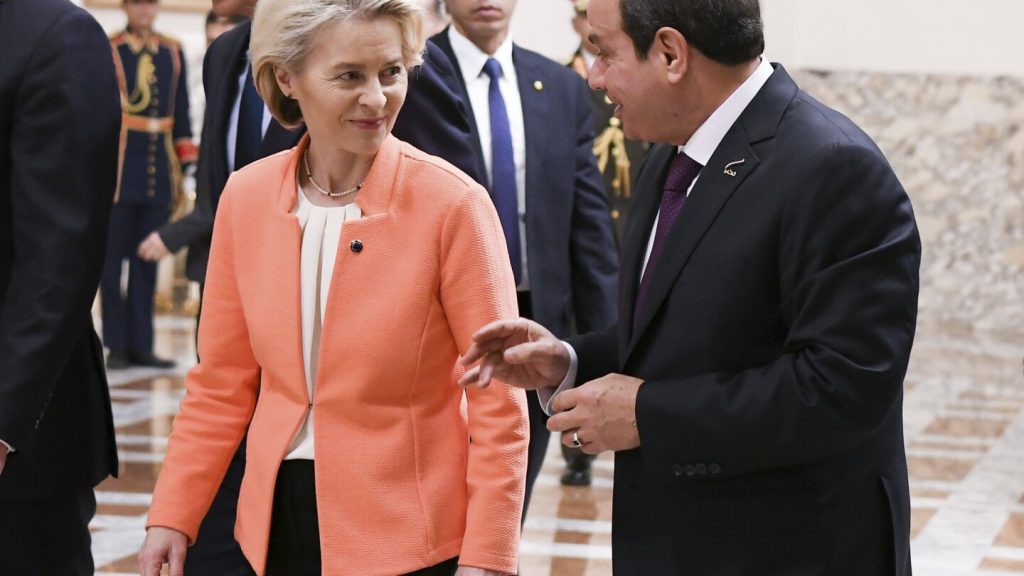The European Union has announced a fast-track aid package of 1 billion euros ($1.1 billion) for Egypt, part of a larger financial assistance package of 7.4 billion euros ($8 billion) to the North African country. The aid is aimed at providing grants and loans to help Egypt cope with economic pressures and regional conflicts, such as the war in Ukraine and the conflict in Gaza, which could potentially drive more migrants to Europe. Most of the funds, 5 billion euros ($5.4 billion), will be direct macro-financial assistance to Egypt’s Central Bank.
Due to the upcoming European Parliament elections, European Commission President Ursula von der Leyen has proposed the urgent release of 1 billion euros in aid to Egypt, bypassing parliamentary oversight and other safeguards. This move is aimed at addressing Egypt’s deteriorating economic and fiscal situation, exacerbated by external factors like the war in Ukraine and conflicts in Gaza and Sudan. The EU plans to utilize a seldom-used provision in EU treaties, Article 213, to ensure the quick disbursement of funds without the need for parliamentary approval.
The aid package includes a significant investment plan, as well as loans for Egypt’s migration management efforts. The fast-tracked funding is intended to provide immediate relief to the Egyptian economy, which has been struggling due to a combination of government austerity, the COVID-19 pandemic, and regional conflicts. While Egypt is required to implement reforms to receive the remaining 4 billion euros in aid, the Commission acknowledges that the country has been slow in making policy revisions and has a backlog of domestic reforms to address.
Migration issues are a key factor driving the EU-Egypt aid deal, as EU countries seek to prevent a rise in arrivals from North Africa. The EU has previously established agreements with countries like Turkey, Mauritania, and now Tunisia to enhance border security and curb irregular migration flows. Despite human rights concerns in Egypt, the Commission maintains that the country’s political leadership has taken steps to emphasize the importance of respecting human rights in recent years. The EU aims to balance its humanitarian objectives with the need to address migration pressures from the region.
The EU has emphasized the importance of human rights and democratic mechanisms in granting macro-financial assistance to countries like Egypt. However, there are concerns from organizations like Amnesty International about rights abuses in Egypt and the need for the EU to prioritize human rights in its relations with the country. Egypt has recently taken steps to stabilize its economy, including floating its currency and securing a bailout loan from the IMF, with additional investments from Gulf Arab states. Egyptian President Abdel Fattah el-Sissi has relied heavily on support from wealthy Gulf states to bolster the country’s economy.
Overall, the EU’s decision to fast-track aid to Egypt reflects the urgency of addressing economic challenges exacerbated by regional conflicts and migration pressures. While the move bypasses parliamentary oversight, the EU has plans to involve the newly elected parliament in approving the remaining funds for Egypt. The Commission has stressed the importance of human rights in its aid relations with Egypt, but critics continue to raise concerns about rights abuses in the country. The aid package is seen as a way to provide immediate relief to the Egyptian economy and support efforts to manage migration flows.


